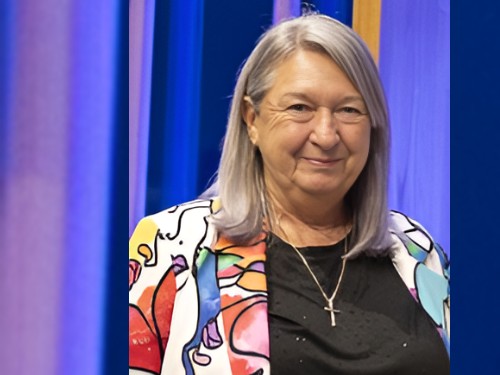Grant to develop culturally safe cancer care for Aboriginal and Torres Strait Islander peoples

Associate Professor Julieann Coombes, Acting Program Lead, Guunu-maana (Heal) Aboriginal and Torres Strait Islander Health Program at The George Institute for Global Health, and team have been awarded a Cancer Institute NSW Aboriginal Cancer Research Grant. The funding will support a project exploring ways to improve cancer care for Aboriginal and Torres Strait Islander people through the creation of a culturally safe model.
Cancer is a leading cause of death for Aboriginal and Torres Strait Islander people, who frequently face delays in diagnosis, limited access to screening, and a lack of culturally appropriate care. They also face challenges such as racial discrimination and difficulties in navigating the complex healthcare system.
Aboriginal and Torres Strait Islander people with cancer have a lower 5-year survival rate (40%) than non-Aboriginal Australians (52%)1 , and are 2.1 times more likely to die from cancer than non-Aboriginal Australians2.
The South-Western Sydney Local Health District (SWSLHD) is home to a growing Aboriginal and Torres Strait Islander population. The Guunu-maana (Heal) Program at The George Institute aims to create and implement a culturally safe cancer care model within this community, focused on patient-centred care and building cultural skills in healthcare workers. They will embed Aboriginal Health Workers (AHWs) and a Safe Pathways Aboriginal Educator to deliver the Building Cultural Capabilities program (BCC) across SWSLHD oncology teams.
Our project will assess the impact of this model on patient outcomes, healthcare team confidence and people’s overall cancer care experiences.
Our goal is to use these findings to improve cancer care for First Nations people, and build greater equity and trust within the healthcare system.By:A/Prof Julieann Coombes
Acting Program Lead, Guunu-maana (Heal) Aboriginal and Torres Strait Islander Health Program
The culturally safe cancer care project will provide ongoing support through Aboriginal Health Workers, including transport, accommodation, and family involvement. It aims to make cancer care more accessible and culturally relevant, and will use Indigenous frameworks such as yarning for knowledge-sharing, to take a decolonising approach that values Aboriginal perspectives.
This approach is expected to lead to earlier diagnoses, better follow-up care, and fewer cancer-related deaths. Findings will be shared with policymakers to advocate for culturally safe cancer care nationwide.
References
1. AIHW. 2013. Cancer in Aboriginal and Torres Strait Islander peoples of Australia: an overview.
2. Cancer Institute NSW. 2021. Aboriginal cancer statistics.
Stay connected and updated
Subscribe to our mailing list for the latest news, events, and updates in health research.
